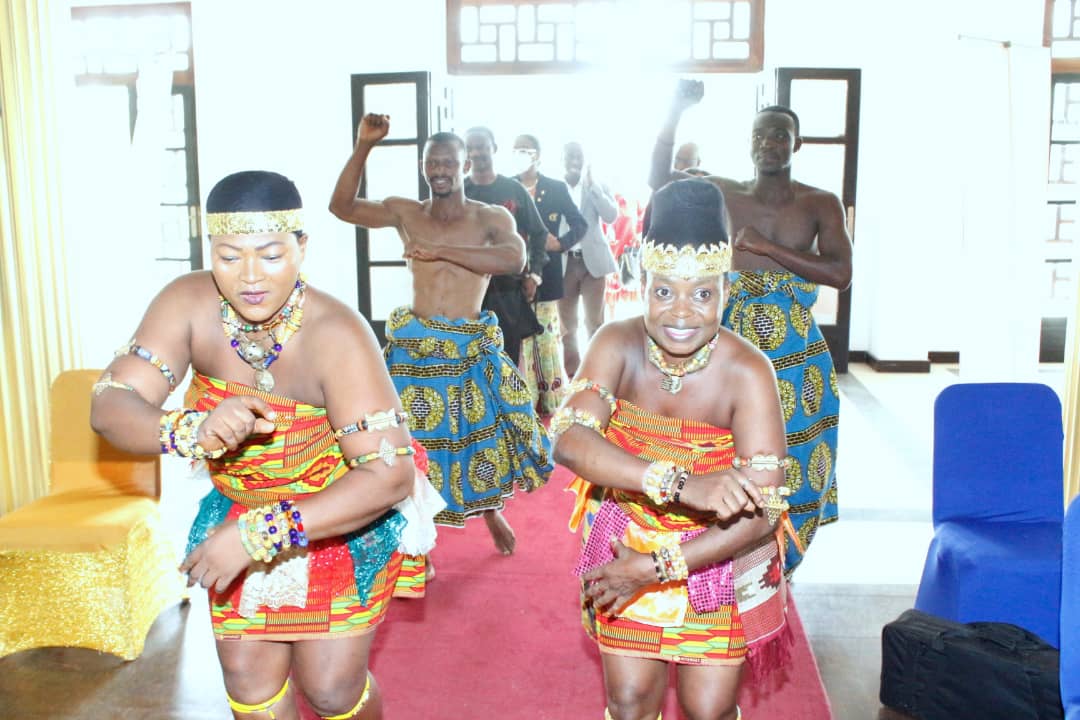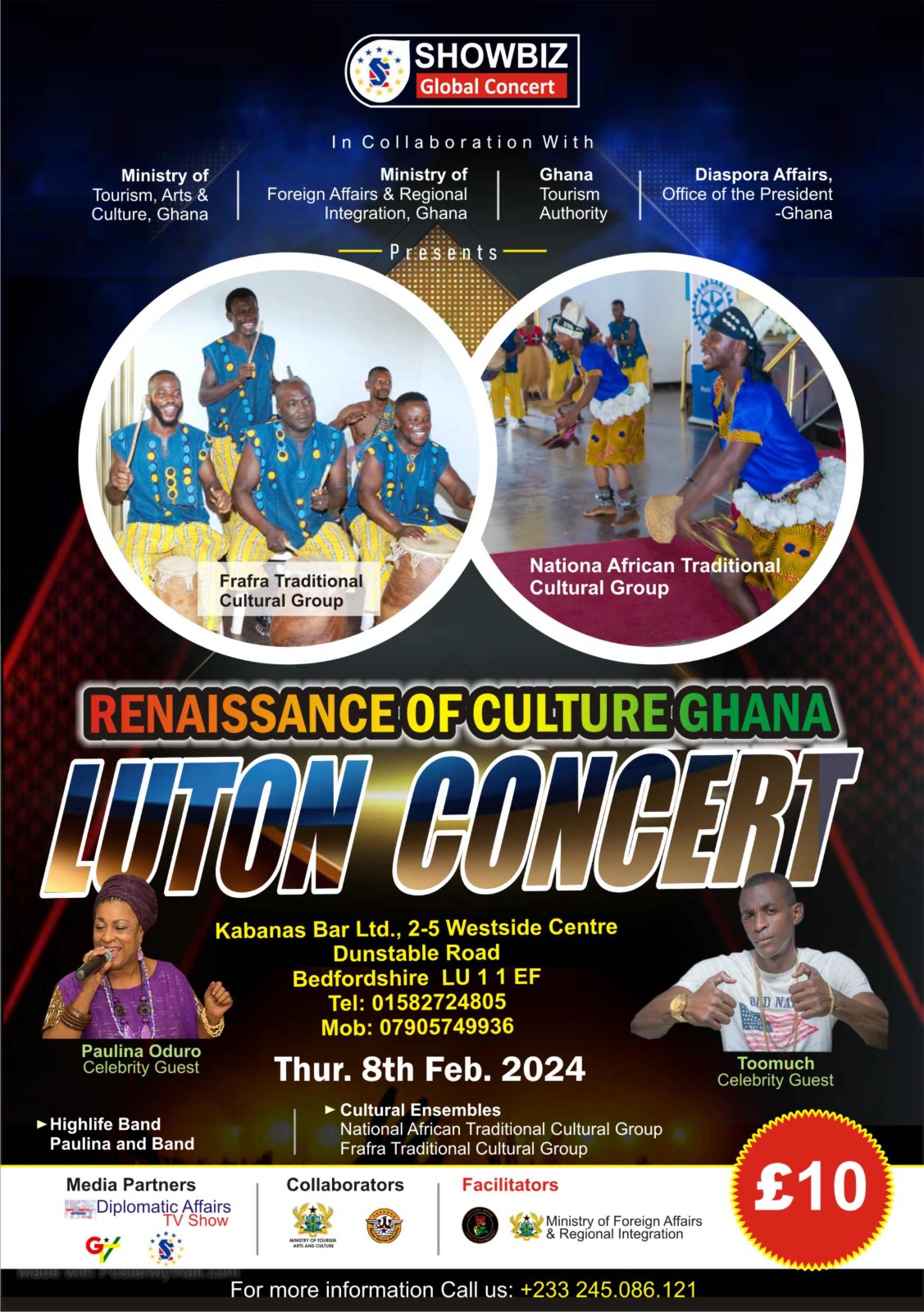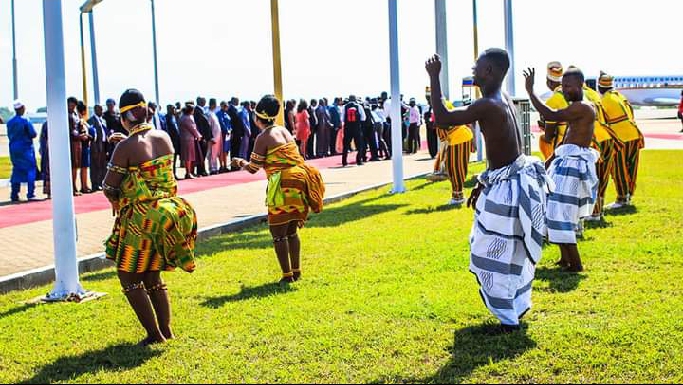Ghana, a country known for its rich cultural heritage, has long been a beacon of tradition and community. In an era marked by rapid globalization and modernization, it becomes increasingly important to sustain Ghanaian culture. This blog will explore the significance of preserving Ghana’s cultural roots, share strategies for cultural sustainability, and highlight the benefits of a strong cultural identity.

The Importance of Cultural Preservation
Identity and Heritage: Ghanaian culture is a tapestry woven with the threads of diverse ethnic groups, each contributing unique customs, languages, art, and traditions. These cultural elements shape the identity and heritage of Ghana’s people, providing a sense of belonging and unity.
Connection to the Past: Ghana’s cultural practices offer a bridge to the past, connecting modern Ghanaians to their ancestors and the wisdom of earlier generations. Preserving these traditions is a way to honor the legacy of those who came before.
Social Cohesion: Cultural practices and traditions often serve as the glue that binds communities together. They provide a sense of belonging and shared values that foster social cohesion and cooperation.

Strategies for Sustaining Ghanaian Culture
Education and Awareness: Ensuring that younger generations understand the importance of Ghanaian culture is vital. This can be achieved through the integration of cultural education into school curricula and community initiatives that promote awareness.
Documentation and Preservation: Recording oral traditions, documenting rituals and customs, and archiving traditional knowledge are crucial for preserving Ghana’s culture. Museums, libraries, and cultural institutions play a significant role in safeguarding these treasures.
Cultural Festivals and Celebrations: Traditional festivals, such as Homowo, Aboakyer, and Odwira, are opportunities to showcase and celebrate Ghanaian culture. Encouraging participation and attendance at these events helps keep traditions alive.
Support for Artisans and Craftsmen: Ghana is renowned for its traditional art and craftsmanship, including kente cloth, beadwork, and carvings. Supporting local artisans ensures the continuation of these unique skills and traditions.
Language Preservation: Ghana is home to numerous languages, and many are at risk of becoming endangered. Efforts to teach and preserve these languages can help maintain cultural diversity.
The Benefits of Cultural Sustainability
Strong Cultural Identity: A society that values and sustains its culture benefits from a strong cultural identity, which can enhance a sense of pride and unity among its people.
Tourism and Economic Growth: Ghana’s vibrant culture is a significant draw for tourists. By preserving cultural traditions and practices, the nation can boost its tourism industry, creating economic opportunities for communities.
Social Harmony: A shared cultural identity fosters social harmony, as people from different backgrounds can find common ground and mutual respect in their cultural heritage.
Resilience in the Face of Change: As the world evolves, a strong cultural foundation provides a source of resilience and adaptability. It helps communities navigate change while preserving their core values.
Sustaining Ghanaian culture is not only about preserving the past but also securing the future. It is about honoring the values, beliefs, and practices that define Ghana and its people. By prioritizing cultural preservation and celebrating its unique heritage, Ghana can continue to thrive in a globalized world while staying true to its roots. The sustainability of Ghanaian culture is a testament to the strength of the nation and the resilience of its people.



